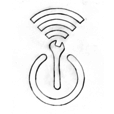Restart Podcast Ep. 28: Disruptive design and unlocking wonderment with Leyla Acaroglu

Summary: In our first monthly Restart Podcast of the year, Dave talks to Leyla Acaroglu: self-described designer, systems thinker and sustainability provocateur. Leyla's energy is contagious as she talks us through her methods for designing not just useful and effective products, but also new systems and social conventions.<br> <br> Having grown frustrated with the ways in which traditional education prioritises linear thinking, Leyla founded the Unschool of Disruptive Design. Within this framework, she teaches systems thinking: a way of looking at the world that acknowledges its interconnectedness. This idea has its roots in The Gaia Theory, which sees earth as a synergistic, self-regulating, complex system made up of both living beings and inorganic substances.<br> <br> For Leyla, systems thinking enables a fierce optimism in the face of some of the world's most challenging issues: celebrating the complexity of the societies we have build, she argues that every problem holds its own solution. This means that designers have an important role as change-makers: but only if they learn to think creatively and holistically. She explains how optimism and outrage are not mutually exclusive, reflecting on some of her experiences as a young woman in Australia that drove her to do what she currently does.<br> <br> Leyla is concerned by the normalisation of unethical practises in design, but she sees huge potential for its revival as a force for good, or 'silent social scripter': "We need people pushing at the boundaries of what it means to create things in the world, and what it means to deliver functionality to humans, and what it means to influence desire".<br> <br> Leyla was one of our Keynote speakers at last year's Fixfest: a global gathering for community repair. She talks about the connections between design and repair, and how repairers are often natural system thinkers. We share her confidence that more dialogue between these two closely related industries would lead to a world where people think more deeply about what they are creating, why, and who for.
